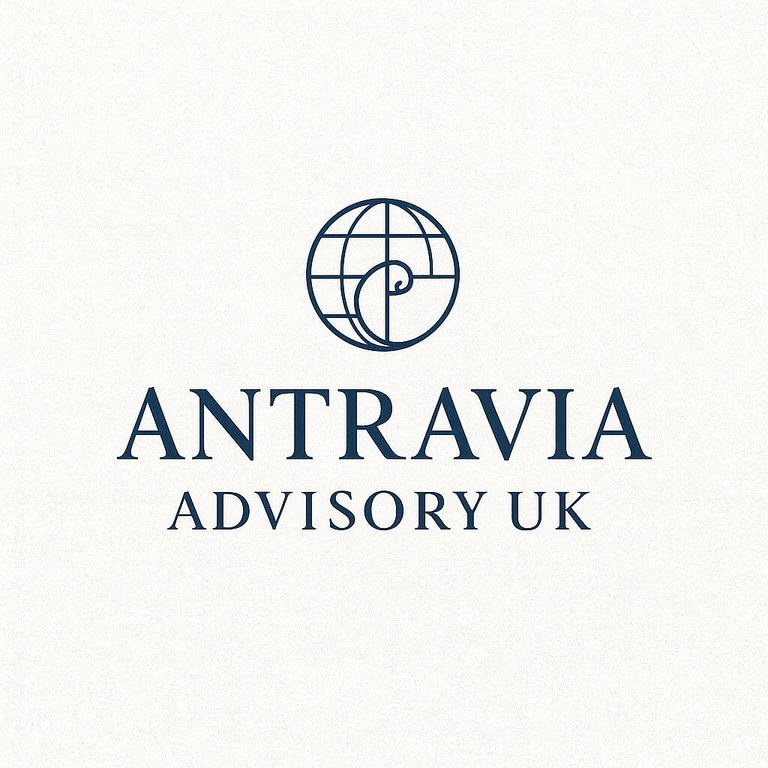Business Structure for UK Travel Agents | Antravia UK Guide
Sole trader, partnership, or limited company? Learn which structure works best for UK travel agents and tour operators, and how it affects tax, VAT, and compliance.
TRAVEL AGENTS FINANCE
10/10/20254 min read


How to Choose the Right Business Structure for Your UK Travel Agency
Starting a travel agency or tour operation in the UK means building on the right financial and legal foundation. The structure you choose determines how you pay tax, what liabilities you face, and how easily your business can grow.
Whether you plan to sell holidays under your own brand or through a host network, choosing between a sole trader, partnership, or limited company is one of the most important financial decisions you’ll make.
1. Sole Trader: Simple Setup, Personal Liability
Many independent travel agents begin as sole traders because it’s quick and inexpensive to start. You register with HMRC for self-assessment and use your own name or trading name.
Advantages:
Simple setup and fewer reporting requirements.
Profits are yours to keep after tax.
Low administrative costs.
Disadvantages:
You are personally liable for business debts.
It can be harder to separate business and personal finances.
Limited access to investor funding.
Tax treatment:
Profits are taxed under income tax rates, and you pay Class 2 and Class 4 National Insurance. You can register for VAT if your turnover exceeds £90,000, or voluntarily to recover input VAT if it benefits your business model.
2. Partnership: Shared Risk and Responsibility
A partnership can work for two or more agents building a joint travel business, though it still exposes partners to personal liability. You’ll need a written partnership agreement defining how profits, losses, and decision-making are shared.
Advantages:
Combines skills and resources.
Flexible decision-making.
Disadvantages:
Joint and several liability - each partner can be held responsible for all debts.
Potential disputes if profit-sharing is unclear.
For many travel agents, this structure is suitable only in the early stages. As the business grows, most transition to a limited company for better protection and credibility.
3. Limited Company: Professional, Scalable, and Tax-Efficient
Setting up a private limited company (Ltd) is often the most strategic option for serious travel agents and tour operators. The company becomes a separate legal entity, meaning your personal assets are protected from most business liabilities.
Advantages:
Limited liability protection.
More credibility with suppliers, hosts, and investors.
Opportunity for tax planning through dividends and salaries.
Easier to sell or bring on new shareholders.
Compliance:
You must register the company with Companies House, file annual accounts and a confirmation statement, and keep accurate records. Corporation tax is currently charged at 25% (with small profits relief for some businesses).
Directors must follow legal duties under the Companies Act 2006, including maintaining proper accounting records and acting in the company’s best interests.
4. VAT and the Tour Operators’ Margin Scheme (TOMS)
For travel businesses, VAT treatment is more complex than in most sectors. If your company sells travel packages or services outside the UK or EU, you may fall under TOMS - a specialist VAT regime for tour operators.
Key points:
VAT applies on the margin, not on total sales.
Input VAT on related costs cannot usually be reclaimed.
The scheme only applies to travel services supplied in your own name, not as an agent for another supplier.
Misunderstanding TOMS can lead to incorrect VAT reporting and penalties, so professional accounting guidance is essential before you register.
5. ATOL, ABTA, and Regulatory Implications
Beyond tax and accounting, the business structure you choose also affects your licensing obligations.
ATOL (Air Travel Organiser’s Licence): Required if you sell flights or flight-inclusive packages. Operated by the Civil Aviation Authority (CAA).
ABTA Membership: Optional but valuable for credibility and consumer confidence.
Trust Accounts: Some agents hold client funds in separate accounts to comply with package travel regulations.
Limited companies are often favoured by regulators and banks because they offer clearer separation of client and business money.
Also review our blog - Accounting for UK Travel Agents – TOMS VAT, ATOL, ABTA & more
6. Choosing the Right Path for Growth
If you’re starting small, a sole trader setup may be enough start. But if you plan to handle client funds, contract with suppliers, or market your own tours, incorporating as a limited company gives you stronger credibility, cleaner accounting, and better long-term control.
The decision also affects how you:
Raise capital and take on partners.
Manage VAT and TOMS reporting.
Pay yourself efficiently.
Protect personal assets.
The right structure can help you build your foundation for financial strategy and growth.
Contact us
Antravia UK helps travel agents and tour operators structure their businesses for long-term financial success. Speak to us if you’re setting up or reviewing your UK entity and want expert, travel-specific accounting support.
Disclaimer
This content is for general informational purposes only and does not constitute tax or accounting advice. Always consult a qualified professional for your specific situation.


References
HM Revenue & Customs (HMRC). “Set up as a sole trader: what records you need to keep, how to register, and how to pay tax and National Insurance.” GOV.UK. Available at: https://www.gov.uk/set-up-sole-trader
HM Revenue & Customs (HMRC). “The Tour Operators’ Margin Scheme (TOMS): VAT Notice 709/5.” GOV.UK. Available at: https://www.gov.uk/guidance/the-tour-operators-margin-scheme-notice-709-5
Companies House. “Set up a private limited company: register, directors, shareholders and PSCs.” GOV.UK. Available at: https://www.gov.uk/limited-company-formation
Civil Aviation Authority (CAA). “ATOL: Protecting holidaymakers since 1973.” Available at: https://www.caa.co.uk/atol-protection/
ABTA – The Travel Association. “Why join ABTA: support, protection and credibility for UK travel companies.” Available at: https://www.abta.com/join-abta
Antravia Advisory UK
Where Travel Meets Smart Finance
Email:
Contact us:
© 2025. All rights reserved. | Disclaimer | Privacy Policy | Terms of Use | Accessibility Statement
© 2025 Part of the Antravia Group.
Antravia.com | Antravia.co.uk | Antravia.ae |
Finance.travel | Tax.travel | Consultancy.travel | VAT.travel | VAT.claims |
USSales.tax | EuroVAT.tax | UKVAT.tax |
contact@antravia.com
Antravia Ltd
71-75 Shelton Street
Covent Garden, London
WC2H 9JQ
United Kingdom
